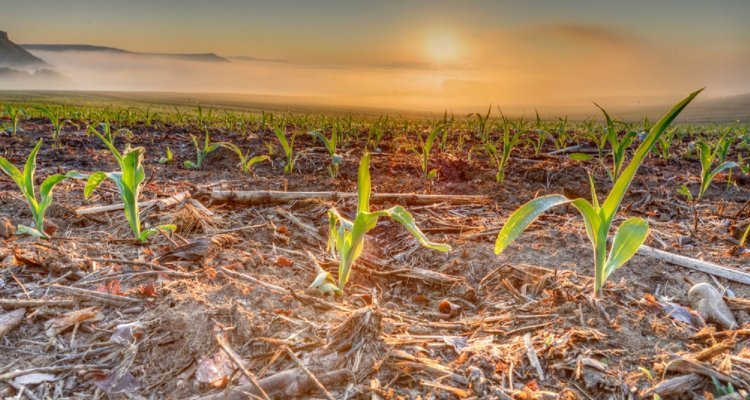Project Proposal
Promoting Sustainable Agriculture and Food Security in Pakistan
Enhance the resilience and productivity of agriculture systems in Pakistan to the impacts of climate change, including droughts, floods, and changing rainfall patterns.
For getting a complete proposal you can contact us at
Contact: gdn100@gmail.com / What’s App Us:+923082792040 and pay the price of your desired project.
Product Description
Objectives:
1. Enhance the resilience and productivity of agriculture systems in Pakistan to the impacts of climate change, including droughts, floods, and changing rainfall patterns.
2. Improve access to sustainable and nutritious food for vulnerable populations, including smallholder farmers, women, and marginalized communities.
3. Promote sustainable farming practices that minimize environmental degradation, conserve natural resources, and support climate adaptation and mitigation.
4. Strengthen the capacity of farmers, agricultural extension workers, and relevant stakeholders in climate-smart agriculture techniques, innovative technologies, and market linkages.
5. Enhance the resilience and adaptive capacity of farming communities through diversified and climate-resilient agricultural practices.
6. Foster collaboration and partnerships among government agencies, research institutions, NGOs, and private sector organizations to accelerate the adoption of sustainable agriculture practices.
7. Promote policies and regulations that support sustainable agriculture, including incentives for climate-smart farming practices, access to finance, and market opportunities for smallholder farmers.

Activities:
1. Conduct capacity-building programs and training sessions for farmers on climate-smart agriculture techniques, such as agroforestry, conservation agriculture, precision farming, and efficient water management.
2. Provide farmers with access to climate information services and early warning systems to enable informed decision-making and timely responses to climate-related risks.
3. Establish demonstration farms and field schools to showcase sustainable farming practices and facilitate knowledge-sharing among farmers.
4. Support the development and dissemination of climate-resilient crop varieties and seed systems that are adapted to local agroecological conditions.
5. Promote sustainable water management practices, including rainwater harvesting, drip irrigation, and watershed management, to ensure efficient use of water resources in agriculture.
6. Facilitate access to credit, insurance, and market linkages for smallholder farmers, enabling them to invest in sustainable agriculture practices and access fair prices for their produce.
7. Conduct awareness campaigns and outreach programs to educate consumers about the importance of sustainable agriculture and support the demand for locally produced, organic, and nutritious food.
Outcomes:
1. Increased agriculture productivity and resilience to climate change, leading to improved food security and livelihoods for farming communities in Pakistan.
2. Reduced greenhouse gas emissions and environmental degradation associated with agriculture through the adoption of climate-smart farming practices.
3. Improved access and availability of nutritious and safe food for vulnerable populations, contributing to improved health and nutrition outcomes.
4. Strengthened capacity of farmers, agricultural extension workers, and relevant stakeholders in sustainable agriculture practices, including innovative technologies and market linkages.
5. Enhanced collaboration and partnerships among government agencies, research institutions, NGOs, and private sector organizations in promoting sustainable agriculture.
6. Advocacy efforts and policy recommendations that support sustainable agriculture, leading to the development and implementation of enabling policies and regulations.
7. Increased awareness and understanding among consumers about the importance of sustainable agriculture and the benefits of consuming locally produced, organic, and nutritious food.

Budget of project:
1. Capacity-building programs and training sessions for farmers:
– Trainer fees and materials: $3,000
– Venue rental for training sessions: $1,000
– Training materials and handouts: $1,000
2. Climate information services and early warning systems:
– Development and maintenance of mobile apps or SMS platforms: $4,000
– Training for farmers on accessing and utilizing climate information: $2,000
3. Demonstration farms and field schools:
– Development and maintenance of demonstration farms: $5,000
– Field school facilitators and coordination: $3,000
4. Development and dissemination of climate-resilient crop varieties and seed systems:
– Research and development costs: $5,000
– Seed production and distribution: $3,000
5. Sustainable water management practices:
– Rainwater harvesting infrastructure: $5,000
– Drip irrigation systems: $3,000
– Watershed management activities: $2,000
6. Access to credit, insurance, and market linkages for smallholder farmers:
– Credit and insurance facilitation: $4,000
– Market linkage support and coordination: $3,000
7. Awareness campaigns and outreach programs:
– Printing of educational materials: $1,000
– Awareness events and campaigns: $3,000
Total Estimated Budget: $39,000









Reviews
There are no reviews yet.